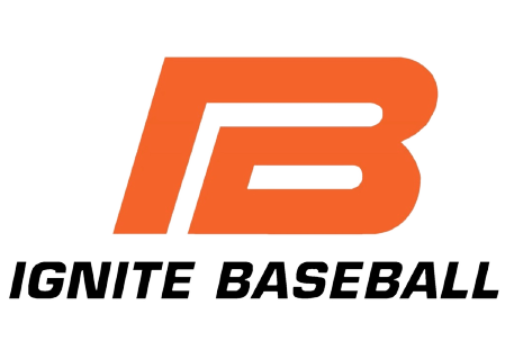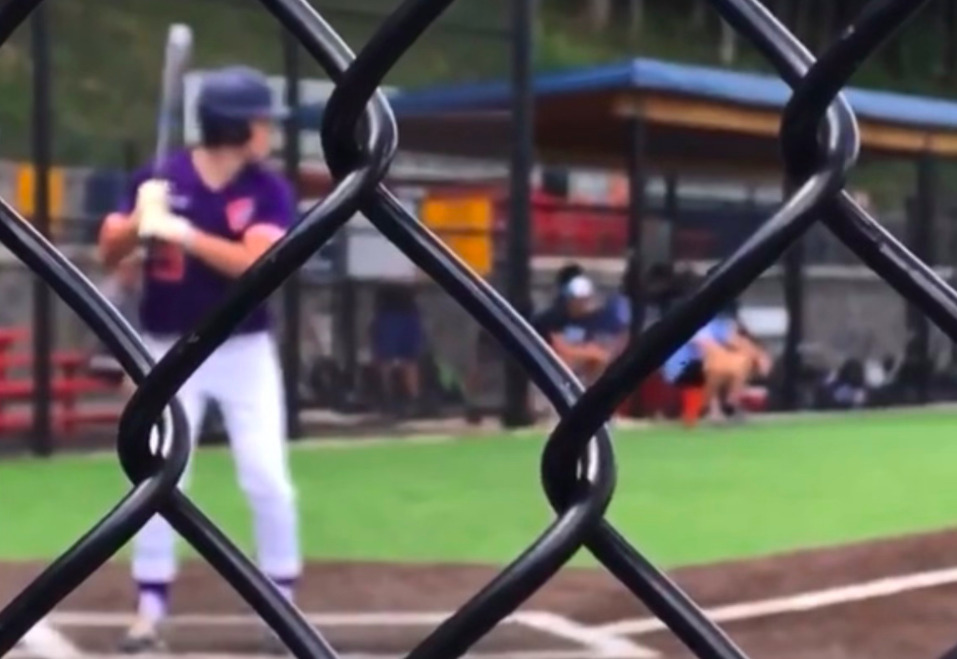Some of you who have been around me a fair amount probably know this, but most of you don’t know that I kind of fell sideways into my baseball career.
I’ll spare you my life story and maybe put that in a different article, but through scouring the internet for every hitting thing I could find, I landed on Baseball Rebellion. We still use a lot of their hitting training aids, and I consider their owner, Chas, to be a friend. Chas had just started talking to aspiring trainers and college coaches about the methods they used to train hitters, and I was pretty lucky to be somewhat early as people who were helping along. Another person who was being helped out at the same time was Tom Eller—Tom is another friend. He was on our podcast a couple of years ago. He used to be the head coach at Harford Community College, a Division One junior college in Belair, Maryland. Because of the relationship with Baseball Rebellion, Tom and I seemed to find each other at the same place a lot—conferences, working clinics at Baseball Rebellion, meeting Manny Ramirez, all kinds of cool stuff. Anyways, through getting to know Tom, I learned about how he approached coaching junior college baseball, and it probably wasn’t a new concept, but it was new to me. For him, his primary goal was player development, and he wanted to get his athletes as good as they could possibly be because given the fact that it was a two-year institution, he viewed it as his job to get players where they want to be.
When I was in college playing D3 baseball, the primary goal was to win. And that was basically it.
Yes, my coaches tried to do a good job of being mentors. At that point in my life, I probably wasn’t ready to receive a whole lot of advice, which is probably common for 18, 19, and 20-year-old kids, but it was pretty clear that we were there to win, and true player development was a bit of an afterthought.
When I look at the travel baseball landscape that we are currently living in, I can’t help but think of the difference between college baseball and junior college baseball.
Showcase-level travel baseball has the goal of helping you commit to your college baseball program. And on most high-level travel baseball teams, there’s somewhere between one and six guys that are no-brainer, potentially D1 college baseball players. Obviously, some teams are stacked and have many excellent players that can and will play in college.
What makes me scratch my head is those other kids on that team that are not yet at the level to be recruited by a high-level program. Why are they there? Do they think that they’re at the level to play high-level college baseball? My guess is that some think that they are at that level and I’ve just not been seen by the right coach. This may be true. However, it also may be true that you’re just not ready to showcase yet, and that’s OK. At the college ranks, kids that are not yet ready to perform at the D1, D2, D3, or NAIA level have the option of playing junior college baseball. And junior colleges that run things right focus on player development (just like Coach Eller did at Harford) are able to help athletes develop into what they want to be and land in a 4 year school or with a pro contract. When I look at travel baseball, I don’t see many organizations doing what junior colleges do. Most big organizations rarely practice because they are pulling kids from a 2 to 3-hour radius and in that scenario, how would you practice? I don’t even know.
At Cadets Travel Baseball, we’ve been down this road for a while. Cadets started in 2010 with my business partner, Aaron Tarr, at the helm. He is now a college coach at Mount St. Mary’s University in Maryland. When he first started, Cadets only handled middle school baseball. Then, as the years went by, we transitioned to having high school teams as well.
Many kids who were once Cadets have played college baseball or are playing college baseball right now.
What we observed as we got up to 17 U and 18 U is that what people value changes. At that point, they just want to figure out where their kid is going to school and get them committed. This is totally natural, and I understand why parents feel this way. Of the kids that we saw commit to schools, it usually stemmed from them going to a camp that the school they ended up attending put on and meeting a coach from that school or another school that was in attendance at that camp. There were times where people got seen at tournaments and they ended up starting a relationship with that coach, which eventually ended up in them committing to that school, but how frequently that happened was more along the lines of 20 to 30% of the time as opposed to 70 or 80% of the time when an athlete went to the college camp.
Here’s a thing about Northern Virginia that you probably know intuitively, but I’ll say it directly. To most of the families in this area, academics is the most important thing. As a result, some schools are just out of the question. If Castleton University (where I went to college)tried to recruit someone from this area, the odds of that person going to play at Castleton are next to zero. Unless that player really likes skiing.
I had some great teachers at Castleton, so it doesn’t matter to me. People can think whatever they want about the institution that they go to, but if you get recruited to play baseball at a school, but you have no interest in attending that school and would never go to that school in 1000 years, did the fact that you got recruited matter?
Certainly getting recruited helps us build a little bit of confidence, telling us that we are on the right path. But going to random tournaments and hoping that the school of your dreams is going to be there is very much a shotgun approach. Does it work sometimes? Yes. Who does it work for? It works best for someone whose number one priority is to play college baseball at all costs. If you’re thinking to yourself, “I don’t really care where I go. I just want to get an opportunity to play,” then the traditional type of showcase Baseball is probably for you because it will put you in front of a high volume of college coaches. You could make an argument that there is another route to get you in front of even more college coaches, and I will do that in a second, but I do want to acknowledge this point: if Baseball is your number one priority, your roadmap to success likely looks like this:
-
- Get really good at baseball.
- Work hard on your physicality so you’re ready to be recruited at the college level.
- Find a showcase team that can compete at tournaments that will put you in front of the caliber of school that you’re looking to play at.
- Speak with coaches and commit to the school you plan to attend.
Here’s, in my view, what the problem is:
-
- Kids only get pretty good at baseball.
- Kids do not work on their physicality, and they are not ready to be recruited at the college level.
- Kids find a showcase team, but the team is not very good, or they are back-of-the-roster players.
- Families sink endless dollars into getting seen by college coaches not realizing the fact that they truly are not good enough to play at the level they think they are.
Steps one and two are far and away the most important and the hardest. Too often, I see athletes jump to step three before they are ready. And as a result, they do not reach their full potential. We should not move on to step three until athletes are roughly at the 16U level. Especially with the new recruiting landscape. College coaches cannot even talk to you until September 1 of your junior year of high school. So before your 16U summer, you should be spending every second trying to work on your physicality and skills. Because prior to that time, you can’t be recruited, and likely you aren’t ready to be recruited.
When it’s actually time to be recruited, what we’ve seen to be the most effective strategy for getting in front of college coaches is going to the camps of schools you actually want to attend. We view this as a much more precise approach to getting in front of schools that align with your interests.
Also, it guarantees that college coaches are actually going to be there. One of the biggest recruiting locations in the northeast is a complex in New Jersey called Diamond Nation. It’s a huge complex, all turf, beautiful facilities. Our high school teams played a couple of tournaments there this summer. Every day when you walk in there is a chalkboard, and on the chalkboard, they write the names of the schools and pro organizations that are at the fields that day. One day when I showed up to coach, there were five names written there. I believe there are seven or eight fields at Diamond Nation. Don’t quote me on that. Let’s call it eight fields just to make it simple. So basically, in that situation, you have a 5/8 chance of a coach or scout watching your game. And that’s not even a normal day; on a normal day, you’d only see two or three names on the board. When you go to a college camp, college coaches are 100% going to be there. And often there’s going to be more colleges than just the college that you are trying to attend.
For example, my business partner, Aaron Tarr, used to be the volunteer assistant at Georgetown. One of the camps that would always work would be the Navy camp.
There would be a lot of other schools there. The schools that they would invite would be schools that do not directly compete for players. So the kids who go to Georgetown would be different than the players who go to Navy. The other schools in attendance would be schools in D2 and D3. So you’re looking at a camp where likely all of Navy’s staff is in attendance and 5 to 8 coaches from other schools are in attendance. So we’re looking at somewhere between 7 – 10 coaches that you’re 100% going to interact with. From my perspective that’s a no-brainer. A camp is far more productive than a tournament.
So, from our perspective, the best way to get recruited is to have the same step one and two, but then here’s the playbook.
From our perspective at the Ignite Cadets, we have to make a decision about where we’re going to be in that journey and what role we want to fill.
-
- Get really good at baseball.
- Kids do not work on their physicality, and they are not ready to be recruited at the college level.
These are the things that we do at a very high level.
And with Cadets, we will focus solely on these two steps all the way through 16U baseball. At which point athletes will have decisions to make they can take one of three paths.
A) Play on a travel team that looks to get in front of coaches/scouts. – Baseball First – Don’t care where level as long as it’s a high level path. I would call organizations like this college recruiting companies they take player that are already very good and try and present them to college coaches. This is the right fit for some people, it just doesn’t align with Ignite’s mission.
B) Play on a competitive team that leaves room on the schedule so you can attend colleges camps – This is what we do. Less cost per season and less travel costs, more focus on development.
C) Play locally and have fun competing in the game of baseball.
It seems like every organization these days wants to say that the reason someone is playing at a high level is because of them. I get it; it’s marketing, and coaches want to make their name based on the work they do. For some athletes, playing for Cadets from 13U-18U will be the right path for them, and that will be the best fit. For others, leaving after 16U will be the play so they can join a college recruiting company. For others, they’ll never play for Cadets; training with us in the facility is all they’ll do. For us, all of those outcomes are totally fine. This is our mission statement: To guide baseball and softball players to their fullest potential using validated methods, technology, and clear communication. So for us, we’re just trying to help as many people as we can. Hopefully, you will consider being one of them.
Thanks for reading,
Kurt Hewes
Founder & CEO of Ignite Baseball
Director of Player Development Cadets


